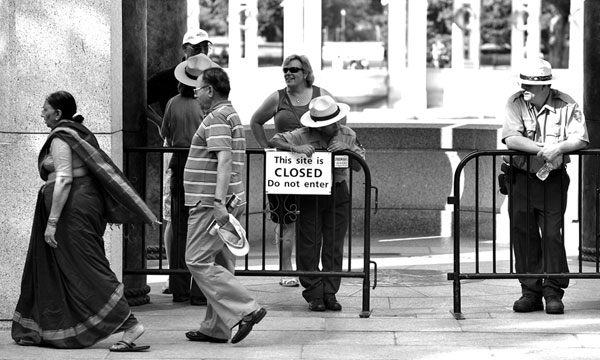Switching to a win-win mindset

 The partial US federal government shutdown, which reached its 10th day on Thursday, has been a mess for tens of thousands of Chinese tourists visiting the US during China's National Day holiday week.
The partial US federal government shutdown, which reached its 10th day on Thursday, has been a mess for tens of thousands of Chinese tourists visiting the US during China's National Day holiday week.
Major attractions, including the Statue of Liberty, Yellowstone and Yosemite national parks and the National Mall with its dozen museums, have been closed since Oct 1.

Tourists walk past US Park Service rangers manning a barrier at the World War II Memorial in Washington, as the partial government shutdown entered day six on Sunday. [Photo/Agencies]
A simultaneous fight over raising the US debt ceiling has caused deep concern for China and other major US debt holders.
However, some US pundits believe that the Chinese have reason to celebrate.
At least that was the feeling I got at an Oct 2 function when several pundits at the Center for Strategic and International Studies in Washington talked about how US President Barack Obama's cancelation of trips to the Philippines and Malaysia represented a win for China and a loss for the US. They might have said just two days later that it was huge victory for China when Obama decided to abort the whole East Asia trip.
Richard Haass, president of the Council on Foreign Relations and a former State Department official, shared this view in his article discussing the repercussions resulting from Obama's Asia absence.
It seems that without the benefit of Obama's presence, East Asia will suddenly fall apart or China will take the opportunity to rock the boat.
What we have seen, though, is that President Xi Jinping has not altered his plans in order to take advantage of Obama's absence. What we have also seen is that Chinese leaders laid out their vision for common prosperity, peace and stability in the region. That kind of peace, stability and economic integration has benefited the region, including China. So it would be foolish to suggest that China wants to see conflict in the region.

































